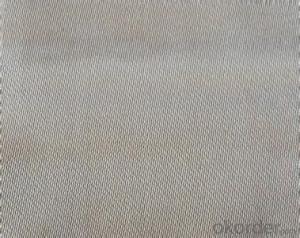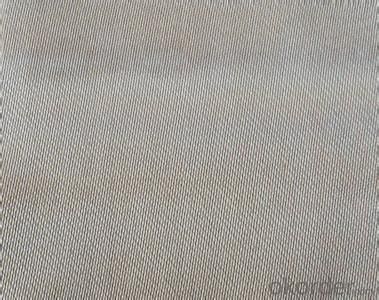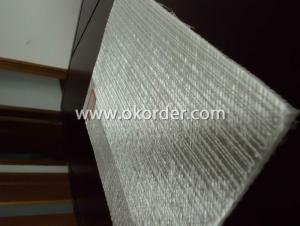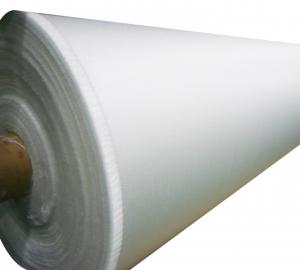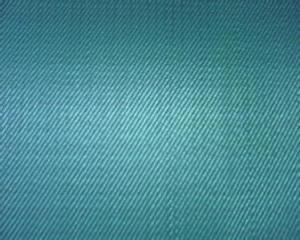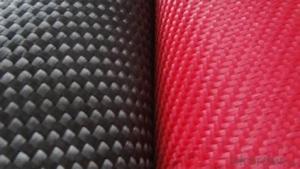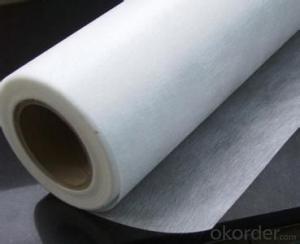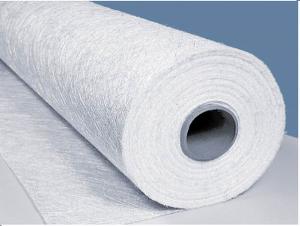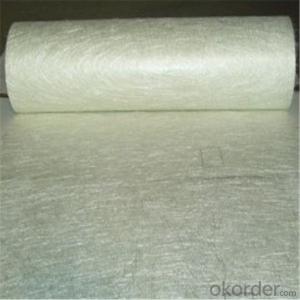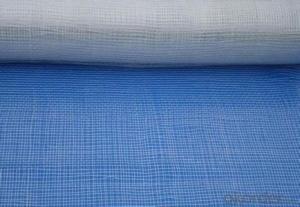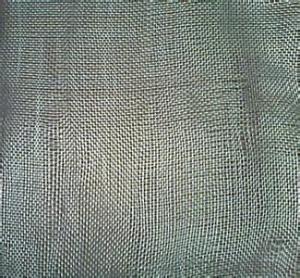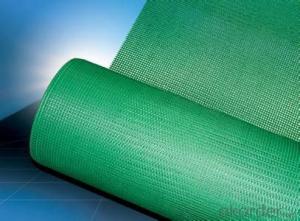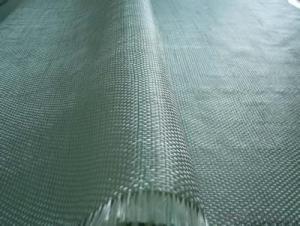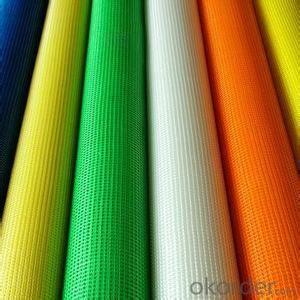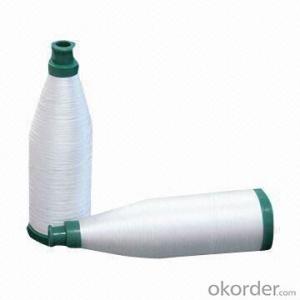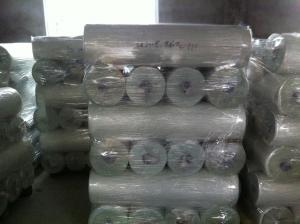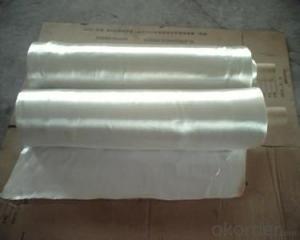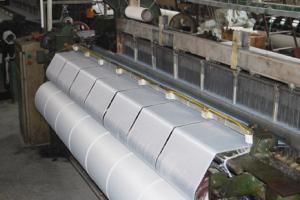Fiberglass Fabrics High Silica Cloth
- Loading Port:
- China Main Port
- Payment Terms:
- TT OR LC
- Min Order Qty:
- -
- Supply Capability:
- -
OKorder Service Pledge
OKorder Financial Service
You Might Also Like
Fiberglass silica cloth
all models are available
1. fireproof, the fire-protection rate can be achieved between B1 to A2.
2. insulation, thermal insulation, glass fiber characteristics. It has high insulation and heat-perseveration functions, which can make the indoor temperature keep constant, can greatly reduce energy loss.
3.High tensile strength.
4. waterproof, water and steam impermeable.
5. aging- resistant, the life time is very long.
6. high temperature proof. do not become deformed under the temp of 500 c.
Color can be silver, red, black and so on. According to customers' request!
Silicone is a good coating, which can make the fiberglass cloth more soft, higher tensile strengh, better fireproof.
Silica cloth is high temperature fabric used for a wide range of insulation and protection applications in industry, excellent heat resistance.
Silica cloth is a special fiberglass cloth which contains more than 96% silicon dioxide, loss on Ignition less than 10%, it can withstand continuous temperatures of 1000 D.C. for long periods of time, and instantaneous temperatures of up to 1600 D.C. The product has been used extensively in the replacement of asbestos.
Silica fabric is primarily used in hot work such as welding and burning operations. It is useful for high temperature thermal and electrical insulation in severe application environments.
- Q: How does fiberglass fabric perform in impact resistance?
- Fiberglass fabric performs exceptionally well in impact resistance. Its high strength-to-weight ratio and inherent flexibility make it highly resistant to impact forces. It can withstand heavy impacts without cracking or breaking, making it an ideal choice for applications where impact resistance is crucial, such as in protective equipment, automotive parts, and aerospace components.
- Q: Does anyone know what kind of sculpture of glass fiber reinforced plastic sculpture is?
- Glass fiber reinforced plastic sculpture is a kind of finished product of sculpture, which is made of glass just as material. Glass has the characteristics of light weight, strong strength, corrosion resistance and relatively low cost. It is also called FRP. It is called fiber reinforced plastics, and is customarily called FRP in china. Glass is based on synthetic resin and glass fiber and its products as reinforcing material. You can simply think of glass and plastic.
- Q: How is fiberglass fabric stored and transported?
- Fiberglass fabric is typically stored in a dry and well-ventilated area, away from direct sunlight and extreme temperatures. It is often rolled onto large cardboard or plastic cores to prevent creasing or damage. When transported, it is usually packed in durable containers or wrapped in protective materials to ensure its safety and prevent any potential damage during transit.
- Q: How is fiberglass fabric dyed or colored?
- Fiberglass fabric can be dyed or colored using various methods. One common approach is to immerse the fabric in a dye bath containing the desired colorant, such as a pigment or dye solution. The fabric is then heated to a specific temperature, allowing the dye molecules to penetrate and bond with the fibers. Another method is printing, where the desired pattern or design is applied to the fabric using specialized dyes or pigments. The fabric can also be colored during the manufacturing process by incorporating colored or pre-dyed fibers. Overall, the specific technique used to dye or color fiberglass fabric depends on the desired outcome and the capabilities of the manufacturer.
- Q: What is the material of the computer mainboard PCB?
- The flat surface of the motherboard is a PCB printed circuit board which is divided into four layers and six boards. Four layers: main signal layer, ground layer, power layer and sub signal layer.
- Q: Can fiberglass fabrics be used for geotextile applications?
- Yes, fiberglass fabrics can be used for geotextile applications. They have excellent properties such as high strength, durability, and resistance to chemicals, which make them suitable for various geotextile functions like soil stabilization, erosion control, and drainage.
- Q: What are the different surface textures available for fiberglass fabric?
- There are several different surface textures available for fiberglass fabric, each serving a specific purpose and offering unique characteristics. 1. Plain Weave: This is the most common surface texture for fiberglass fabric. It consists of a simple over-and-under pattern, creating a balanced and uniform appearance. Plain weave fabrics are lightweight and offer good drapeability, making them suitable for a wide range of applications. 2. Twill Weave: Twill weave fabrics have a diagonal pattern, which gives them a more textured and structured appearance. They offer increased strength and are commonly used in applications that require added durability, such as automotive parts or sporting goods. 3. Satin Weave: Satin weave fabrics have a smooth and glossy surface texture. They are characterized by long floating yarns that create a lustrous appearance. Satin weave fabrics are known for their excellent draping qualities and are often used in applications where aesthetics are important, such as in fashion or interior design. 4. Roving Fabric: Roving fabric is made using continuous filament yarns that are loosely twisted together. This creates a textured surface with a slightly rougher feel. Roving fabrics are commonly used in applications that require high strength and stiffness, such as in boat building or aerospace industry. 5. Knitted Fabric: Fiberglass knitted fabrics are made by interlocking yarns in a series of loops. They have a stretchy and flexible texture, making them suitable for applications that require conformability, such as in composite reinforcements or insulation materials. Overall, the choice of surface texture for fiberglass fabric depends on the specific requirements of the application, including strength, stiffness, aesthetics, and drapability.
- Q: Is fiberglass fabric suitable for use in filtration systems?
- Yes, fiberglass fabric is suitable for use in filtration systems. It is commonly used in various industries, including air and liquid filtration, due to its excellent filtration properties, high temperature resistance, and durability. The tightly woven structure of fiberglass fabric allows it to effectively trap and remove particles, ensuring efficient filtration.
- Q: How is fiberglass fabric used in the production of protective suits?
- Due to its unique properties, fiberglass fabric is a commonly used material in the production of protective suits. It is highly effective in shielding individuals from hazardous environments and is known for its excellent heat resistance, making it ideal for industries like firefighting or metalworking where workers are exposed to high temperatures. In addition to its heat resistance, fiberglass fabric is also highly durable and provides exceptional tear and abrasion resistance. This makes it suitable for protective suits that need to withstand rough conditions and potential punctures, ensuring long-lasting protection. Its strength also improves the overall structural integrity of the suit, offering reliable defense against impacts or sharp objects. Furthermore, fiberglass fabric possesses excellent chemical resistance properties, making it suitable for protective suits used in industries involving hazardous chemicals or corrosive substances. It acts as a barrier, preventing harmful substances from penetrating the wearer's skin and reducing the risk of chemical burns or contact dermatitis. Moreover, fiberglass fabric is lightweight, allowing for greater comfort and ease of movement for the wearer. This is particularly important in professions that require agility and flexibility, such as emergency response teams or hazardous material handlers. Overall, the use of fiberglass fabric in the production of protective suits ensures a high level of protection against heat, tears, abrasion, chemicals, and other potential hazards. This versatile material offers a combination of durability, resistance, and comfort, making it an ideal choice for manufacturing protective suits that safeguard individuals working in various hazardous environments.
- Q: What about the leaking water made of fiberglass cloth?
- Also, fiberglass cloth is the best choice for good quality, such as glass fiber, glass fiber, wellav stone Sichuan glass fiber and so on, which can be used for a long time.
Send your message to us
Fiberglass Fabrics High Silica Cloth
- Loading Port:
- China Main Port
- Payment Terms:
- TT OR LC
- Min Order Qty:
- -
- Supply Capability:
- -
OKorder Service Pledge
OKorder Financial Service
Similar products
Hot products
Hot Searches
Related keywords
